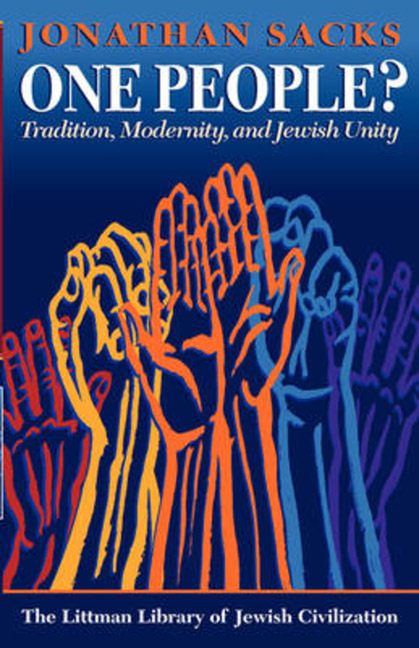Book contents
- Frontmatter
- Dedication
- Preface
- Contents
- Note on Transliteration and Place Names
- Abbreviations
- 1 The Crisis of Contemporary Jewish Thought
- 2 The Birth of the Adjectival Jew
- 3 Orthodoxy, History, and Culture
- 4 Orthodoxy and Jewish Peoplehood
- 5 Tradition and Diversity
- 6 Inclusivism
- 7 A Collision of Consciousness
- 8 Schism?
- 9 The Future of a People
- Bibliography
- Index
Preface
- Frontmatter
- Dedication
- Preface
- Contents
- Note on Transliteration and Place Names
- Abbreviations
- 1 The Crisis of Contemporary Jewish Thought
- 2 The Birth of the Adjectival Jew
- 3 Orthodoxy, History, and Culture
- 4 Orthodoxy and Jewish Peoplehood
- 5 Tradition and Diversity
- 6 Inclusivism
- 7 A Collision of Consciousness
- 8 Schism?
- 9 The Future of a People
- Bibliography
- Index
Summary
THIS book is about one of the most tantalizing and elusive ideas in contemporary Jewish thought: Jewish unity. The phrase is deceptively simple. It is easier to invoke than to understand, and is beset by irony. The idea that Jews are ‘one people’ has emerged as a, perhaps the, dominant motif of post-Holocaust Jewish reflection. It is a constant presence in the public rhetoric of contemporary Jewry. It evokes passion and conviction, but seldom clarity. Set against the reality it seeks to describe, it is an aspiration, not an achievement; a myth rather than a reality. Not since the first and second centuries CE have Jews been less united. Rarely has it been harder to state what constitutes them as ‘one people’. That, in itself, should not surprise us, because demands for unity surface only at times of great internal conflict. But it should at least suggest this: that the obstacles that stand in the way of its realization deserve the most careful analysis.
Words have hypnotic power. The existence of a concept leads us to believe that there is a reality that corresponds to it. Jewish unity exists as an idea. Why then should it not exist as afact? Unity-at least in the minimalist sense of being able to live together, respect one another's integrity, and therefore act collectively towards shared objectivestends to seem at the time, and all the more so in retrospect, to be so eminently achievable that we stand aghast at the failure of individuals to do just that. But to think this way is to fail to grasp the deep structures of division that lead human beings to conceive their destinies in incompatible ways. To believe, in particular, that Jewish unity is a simple idea in an age of unprecedented fragmentation is to have yielded to myth. Contrary to the conventional wisdom of a secular age, I do not believe that Jewish faith is the acceptance of myth. It is the constant battle against myth in the name of religiously conceived possibility. Faith does not ask us to see the world other than as it is. It does, however, ask us to imagine a world that could be, and to work, without illusions, for its realization. Intellectual honesty is a precondition of the religious life.
- Type
- Chapter
- Information
- One People?Tradition, Modernity, and Jewish Unity, pp. vii - xiiPublisher: Liverpool University PressPrint publication year: 1993

